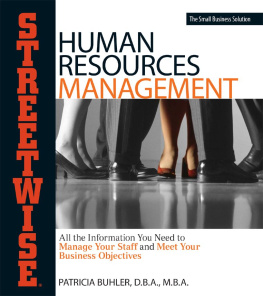MINDLESS
ALSO BY SIMON HEAD
The New Ruthless Economy

Copyright 2014 by Simon Head
Published by Basic Books,
A Member of the Perseus Books Group
All rights reserved. No part of this book may be reproduced in any manner whatsoever without written permission except in the case of brief quotations embodied in critical articles and reviews. For information, address Basic Books, 250 West 57th Street, 15th Floor, New York, NY 10107.
Books published by Basic Books are available at special discounts for bulk purchases in the United States by corporations, institutions, and other organizations. For more information, please contact the Special Markets Department at the Perseus Books Group, 2300 Chestnut Street, Suite 200, Philadelphia, PA 19103, or call (800) 810-4145, ext. 5000, or e-mail .
Designed by Jeff Williams
Library of Congress Cataloging-in-Publication Data
Head, Simon.
Mindless : why smarter machines are making dumber humans / Simon Head.
pages cm
Includes bibliographical references and index.
ISBN 978-0-465-06974-3 (e-book) 1. TechnologySocial aspects. 2. BusinessData processingPsychological aspects. 3. IndustriesTechnological innovationsPsychological aspects. 4.Mental efficiency. 5. Knowledge management. I. Title.
T14.5.H445 2013
303.48'3dc23
2013041878
10 9 8 7 6 5 4 3 2 1
For Dee and Nelson Aldrich
CONTENTS
ALTHOUGH INEQUALITY OF INCOME AND WEALTH IN AMERICA HAS been growing steadily for the past forty years, it was with the Wall Street crash of 20072008 that this disparity took on lurid, visible form with the contrasting fortunes of the winners and losers. On the winning side, with their big bonuses, were many Wall Streeters who themselves bore responsibility for the crash. On the losing side were victims of the crash on Main Street, burdened with high unemployment, crushing personal debt, falling real wages, and shrinking personal wealth propelled by housing foreclosures.
By grim coincidence, detailed statistical evidence of how extreme American inequality had become also appeared during the crisis year of 2007. The data revealed the great good fortune of the super richof the richest 1 percent, 0.1 percent, and even the richest 0.01 percent of Americans. The share of total income of the top 1 percent rose from 8 percent in 1974 to 18 percent in 2007 and from
The reverse side of this massive concentration of income and wealth at the earnings pinnacleunprecedented since the pre-1914 Gilded Ageis the stagnation or fall in the real incomes of virtually everybody else. The growth of median annual earnings of most Americans has been spectacularly weak, irrespective of educational attainment. Between 1980 and 2006 the median annual earnings of fully employed entry-level workers between the ages of twenty-five and thirty-four with a bachelors degree or higher increased by just $1,000 in constant 2006 dollars, from $44,000 to $45,000, for a total percentage increase of just 2.27 percent over a twenty-six-year period, or an increase of less than 0.1 percent a year. The real earnings of those with some college education but with less than a four-year bachelors degree fell by $5,300 over the same period, or a percentage fall of 14.5 percent. For those with a high school diploma or equivalent, the comparable figure was a fall of $5,200 in constant dollars, for a total percentage fall of 15.3 percent.
Unless soon reversed, these decades of income stagnation or decline for the majority threaten something fundamental to American identity that for more than two centuries has set the United States apart from its old European mother countries: the confidence of most Americans that through education and hard work, they can overcome the barriers of birth and inheritance and rise as far as their talents will take them. This confidence is draining away as the barriers of American class strengthen, shrinking the life prospects of what may now be a majority of Americans and including much of the middle class among the newly disadvantaged.
As its title suggests, this book will look at the role of information technology (IT) as a driver of this inequality. By making us dumber, smart machines also diminish our earning power. But the machines that do this are not the automating, stand-alone machine tools of the 1950s, or even the stand-alone mainframes of the 1960s and 1970s, but vast networks of computers joined by software systems and the Internet, with the power to manage the affairs of giant global corporations and to drill down and micromanage the work of their single employees or teams of employees. There now exist in the US economy of the new century these very powerful agents of industrialization, known as Computer Business Systems (CBSs), that bring the disciplines of industrialism to an economic space that extends far beyond the factories and construction sites of the industrial economy of the machine age: to wholesale and retail, financial services, secondary and higher education, health care, customer relations management and human resource management (HRM), public administration, corporate management at all levels save the highest, and even the fighting of Americas wars.
CBSs are being pushed by business academics, especially at the Massachusetts Institute of Technology (MIT), management consultants such as Accenture and Gartner, and IT companies such as SAP, IBM, and Oracle, and embraced by corporations for their efficiency. But they are not well understood beyond these specialist communities engaged in their creation, marketing, and servicing. These systems are today rather as black holes once were before black holes were fully discovered. Astrophysicists knew that there were things out there in the cosmos exerting a gigantic gravitational pull over everything that came into contact with them, but they did not yet know exactly what these things were. CBSs are the semidiscovered black holes of the contemporary economy.
One measure of their obscurity is that there is no generally accepted name for them. Some of the most influential economists doing work in the field call them Computer Business Systems, and I am following their example here. But they have also been known as Enterprise Systems and by several other names and activities closely associated with them at various stages of their history: Business Process Reengineering (BPR) in the early and midnineties, Enterprise Resource Planning (ERP) in the mid- and late nineties, and the Balanced Scorecard (BSC) throughout the 1990s and into the new century. Yet despite this obscurity and lack of a fixed identity, evidence occasionally surfaces showing how much the corporate sector relies on these systems and how heavily it has invested in them.
In 1995 a report commissioned by the Big Three accounting companies reported that 75 to 80 percent of Americas largest companies were engaged in Business Process Reengineering and would be increasing their commitment to it over the next few years.
The human side of this new industrialism can easily get lost in the abstract, theoretical world of macroeconomics and management science. In the first machine age the working class occupied a world apart, tethered to factories and assembly lines and bearing the full rigors of industrialism. In the new machine age, the working class can be all of us. The new industrialism has pushed out from its old heartland in manufacturing to encompass much of the service economy, and it has also pushed upward in the occupational hierarchy to include much of the professional and administrative middle class: physicians as well as call-center agents; teachers, academics, and publishers as well as associates at Walmart and Amazon; bank loan officers and middle managers as well fast food workers.
Next page





